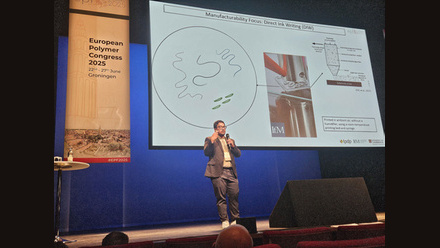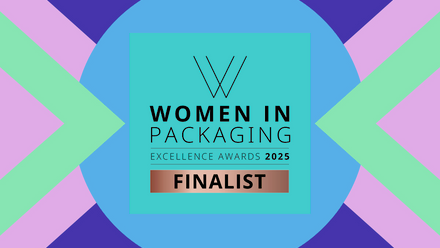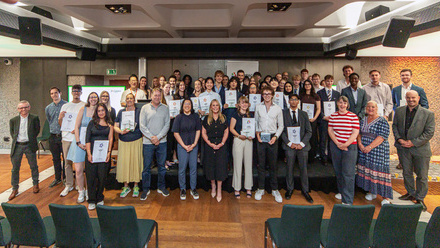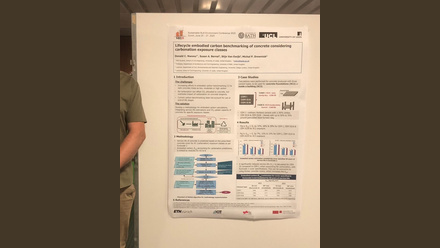The research melting pot
How do we evolve our research culture to optimise academic environments? The first EuroScience Policy Forum sought to tackle the debate.

The last 18 months have shone a light on the pivotal role that scientific research plays in our lives, not just in the development and advancement of technology, but also for our survival. As such, it seems fitting that the first EuroScience Policy Forum sought to examine the effectiveness of our research culture to build on these successes, with a workshop entitled, 'A new research culture for sustainable academia'.
‘Cultures in general, all types of cultures, are based on values…And research is no different,’ mused Dr Sean Sapcariu, Programme Manager at the Luxembourg National Research Fund (FNR).
‘And in research culture, there are values, I would argue, at [the] individual level – so the values you hold dear for yourself – [as well as values] in your group, in your department, institution, country, region, global…And some examples of these values would be integrity, openness and open science principles, collaboration, excellence, academic freedom, creativity, development of individuals, and many more.
‘Many times, these values are tied to the strategy, the goals, the vision of the group, the institution, the department, the country. [These] values are also…underpinning the evaluation for hiring, promotion and grants – so how well does the application fit the quality of excellence, innovativeness, novelty, impact, and all these sorts of things?’
Sapcariu argued that there are two main issues that need solving when reflecting on such values. ‘[The first is that] we have been using the same values for a very long time…but they've not really been expressed,’ he said.
‘And having these implicit values has worked for a long time, lots of great research has been done over…many years. But now that we're bringing research culture into the spotlight and wanting to improve it moving forward, we need to be more explicit about the values underpinning this culture [and] define them.’
The second issue, he explained, is defining these integral values. What does excellence, quality, or impact actually mean?
‘If you define excellence as paper output…that leads to a very different culture than if excellence is how good of a teacher and mentor you are [and] how good you are at engaging with the public.
‘We need to identify, define and align on these values within and across the scales. And this is a fundamental step towards building and defining a research culture that balances the needs and expectations of the scientific community, while achieving the goals of the institutions in the larger research ecosystems.’
He suggested that this needs to be achieved in a combined top-down and bottom-up manner. ‘[As] funders, institutions and policymakers, we need to engage everybody in the research community to design a research culture around these shared values and goals that we see as important…for the future.
‘But at the same time, [the values] should be revisited every five to 10 years…For example, open science 10 years ago was non-existent, and now it's a very, very hot topic. So maybe in 10 years, it'll be so normal that nobody will think about it anymore, and we will need to move on to the next thing.
‘Doing this will [also] help institutions and funders…know what values researchers deem important. [And] they should have a say in how they should be evaluated…[so that it feeds] into the development of evaluation criteria for hiring, promotion, grants, etc.’
He added that working together in creating and updating an explicit set of shared values would help improve research culture and evaluate and reward researchers for the right things, ensuring that research remains an attractive career choice for people throughout Europe and the world.
Building bridges
Professor Ulrike Felt, Head of the Department of Science Technology Studies at the University of Vienna, Austria, discussed the relationship between the research community and wider society.
She talked about how research is organised around temporary projects and some of the challenges that this structure can pose. ‘Research is virtually only organised by projects, which means that we have this constant rupture, a kind of performance [pressure]. And we have to think if the way we fund research is the cleverest way to do that, and that has a lot to do with society,’ she said.
‘In the pandemic, this was a moment of learning…when in the beginning, everybody expected science to give the responses to the problems we have, [and fast]. And we had to learn that science doesn't get fast responses…We’re not always sure what [scientists] know. And I think this came about [from] a very raw misunderstood relationship.’
She suggested that if communicating science is only about selling it to society then this is a ‘very unhealthy relationship’ that does not engender a stable and robust culture where research can flourish. ‘And I think we're doing the mistake [of selling]…science as being fast and perfect.’
Empowering researchers
Professor Günter Ziegler, President of the Freie Universität Berlin, Germany, noted that universities can empower researchers through three key elements – freedom and trust, time and money.
‘Freedom and trust come together – freedom to pursue new, radical, non-standard, high-risk, challenging ideas…[and] the ones that are not guaranteed to work out. That freedom to try things out is absolutely important in order to be able to thrive.
‘That also means…freedom from external, unscientific, short-sighted metrics, freedom from evaluation,’ he added, highlighting the importance of passion-led fundamental research.
He stressed that trust, on the other hand, needs to come from transparency. ‘There has to be [some] sort of meritocratic criteria for career paths. Researchers need to feel that they can trust the system to offer them a fair and transparent career path.’
The issue of time, Ziegler continued, deals with questions of policy, research funding and the duration of grants and contracts. He said that these need to match the scientific tasks.
Grant durations in Germany, for example, are typically too short he said, and often shorter than they are in other European countries. Research times are often disrupted by administrative burdens, such as writing applications and grant requests, and do not take into account time away from the research. ‘If you want researchers to thrive, they do need breaks, they do need weekends, they perhaps need sabbaticals [and] this time has to be in the system.’
Ziegler noted that money is key to unlocking time. ‘Research can only work in these times with sufficient grant money, and money for infrastructure, for buildings, for digital transformation…We don't have enough basic funding for science and the universities are under-funded, and that means that they depend too much on project money.
‘One lesson from the pandemic [is that] one has to invest in the universities, into basic funding, to start things…The future is shaped by research and innovation…so that means the funding has to match the size of the challenges.’
The World Economic Forum’s seven steps for promoting better research culture
- Open communication
Giving researchers the chance to share their successes as well as their ‘failures’, and offering support when things do not go right. This dispels the assumption that senior academics have had continuous successes. - Creating a support system
Providing and promoting career counselling, coaching and support services, which may help to reduce pressures within a research environment and promote wellbeing. - Consensus on behaviours and attitudes
Researchers could develop a group pledge so all team members are aware of what is expected in the research environment. - Sharing best practice
Encouraging researchers and support staff to find time and space to meet to share ideas and experiences. By involving other departments, institutions and sectors, discussions can focus on improving research integrity and culture, to share best practice on what has worked, what has not and its impact. - Leading by example
Organisations, department and team leaders are at the forefront of promoting a positive research culture by taking part in training, encouraging discussions to address difficult questions in an open and honest way, and by having an open-door policy. - Discussing training gaps
Researchers can feel more valued if skills needs are reviewed individually and as a group, ensuring they all possess the necessary skills for their role, such as statistics, data handling, proposal writing and resource management. - Embedding culture at the institutional level
Hosting a research culture and integrity day could be a way of highlighting its importanceand engaging all staff across the organisation. Presentations, workshops and panel discussions could be given from across the organisation. Different departments could showcase the ways they have improved research culture and integrity, as well as addressing areas where there is still room for improvement.







